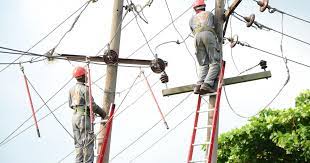DisCos make nearly N268 revenue in Q2, up 68.75% on Q1
By Jeph Ajobaju, Chief Copy Editor
Electricity consumers paid N267.86 billion in bills in the second quarter of the year ended June (Q2 2023), according to the latest figures released by the Nigerian Electricity Regulatory Commission (NERC).
The report disclosed power distribution companies (DisCos) collected 75.54 per cent of bills in Q2 2023, up on 68.75 per cent in Q1 2023.
“The total revenue collected by all Discos in 2023/Q2 was N267.86bn out of N354.61bn billed to customers. This translates to a collection efficiency of 75.54 per cent, representing an increase of 6.79pp (basic points) compared to 2023/Q1 (68.75 per cent),” the NERC said.
“The increase in collection efficiency can be attributed to the increased metering by Discos and the implementation of various collection campaigns for improved remittance by post-paid customers.”
The report explained the cumulative upstream invoice payable by Discos was N194.69 billion, comprising N154.04 billion for generation costs Nigerian Bulk Electricity Trading (NBET) and N40.65 billion for transmission and administrative services by the market operator (MO), per Daily Post.
“Out of this amount, the Discos collectively remitted a total sum of N185.36bn (N152.48bn for NBET and N32.88bn for MO) with an outstanding balance of N9.32bn. This translates to a remittance performance of 95.21 per cent in 2023/Q2 compared to the 67.43 per cent recorded in 2023/Q1.”
The NERC said out of the four international customers serviced by the MO, only Transcorp-SBEE paid $1.43 million against an invoice of $2.13 million issued for services rendered in Q2 2023.
_________________________________________________________________
Related articles:
Unstable power supply costs manufacturers N10tr yearly
Nigerians paying $40m monthly for electricity not supplied
Private power generators cost Nigerians N12tr yearly
__________________________________________________________________
Gasification plants can end unstable power supply within 3 years, says varsity don
A university don has proposed the injection of 7,000 megawatts (mw) of electricity from 10 gasification plants in each of the 774 councils in Nigeria to ensure stable power supply across the country within 3 years.
The idea came from Emenike Ejiogu, a professor and engineering faculty of Dean, University of Nigeria, Nsukka (UNN).
Ejiogu, also the Director of Africa Centre of Excellence for Sustainable Power and Energy Development (ACE-SPED), said Nigeria must adopt energy mix to tackle the energy crisis crippling the economy as the national grid is not sufficient.
He spoke as the 190th Inaugural Lecture of UNN, stressing 7,000 mw of electricity can be injected into each of the 774 councils through distributed energy generation.
He explained UNN gasification plant is an engineering system designed and fabricated with 100 per cent local content, which converts organic solid materials into synthetic gas for electric power generation and other uses.
His words: “The conventional power industries in Nigeria with huge generating plants, produce huge amount of power and transmit it at a long distance.
“The disadvantage of this is that you have to cover the entire country with transmission lines which would result in huge financial losses. The technical manpower is not equally there to maintain this power arrangement because most of the materials are imported.
“In this situation, the best thing to think of is distributed-generation of energy. This can be done by creating micro and mini grids across locations in Nigeria so that we can generate power and distribute locally.
“Gasification plant is one of the enabling technologies that can help you achieve this. The advantage of distributed-generation is that you can generate your power locally and manage it locally.
“When you have a lot of these micro and mini grids, you can begin to tie them together so that in the end, you will have a network.
“With this arrangement, you can infuse a huge amount of energy into our power sector without huge investment in transmission lines and other materials.
“This is an enabling technology because you can easily go into the 774 local government areas across the country and give each of them 10 megawatts of power which would result in 7,740 megawatts of power. This is already more than what our national grid is generating and transmitting.
“If the political will is there, you can infuse a huge amount of energy in our sector within a period of two to three years. It is only the gasification technology that can give you that flexibility because we would be producing fuel from waste materials and coal which are in abundance in this country.”













